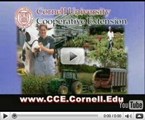In less than three weeks, two fleas can multiply to become five hundred. Don’t let them in! Fall is not necessarily the end to the pest season. Insects and rodents begin their preparations to “overwinter” so they can emerge next spring and start a new generation and they often do this in your home.
Insects and rodents are hazardous to your health. Organisms that cause such diseases as typhus, typhoid, Lyme disease and Bubonic plague are transmitted from pests to humans. Even insect parts have been proven to cause allergies. Insects are destructive to property causing billions of dollars of damage to construction. Rodents have been linked to almost 25 percent of all unexplained fires in the country.
Today’s pest control is a combination of chemical and non-chemical methods and a collaborative effort between the professional pest manager and the homeowner. Above all else, it is common sense to protect our health and property from insects and rodents.
The baby boom pales in comparison to the “bug boom” that hits homeowners.
Two mice can become 2,500 in a year’s time; Two fleas in nine months can be two trillion; An African termite queen can lay as many as 30,000 eggs a day; One female German cockroach can be responsible for up to 135,000 roaches in a year
According to research figures, two German cockroaches in early spring can become 500 by summer, or in just 90 days. Two fleas that hitch a ride indoors on the family pet need only 18 days to multiply to a crew of 500. The following estimated multiplication rates at which other common household pests can produce 500 offspring are:
- subterranean termites – 3 days
- mice – 4 months
- carpenter ants – 1 year
It’s imperative to know and recognize infestation signs so pests can be dealt with before they’re out of control, causing serious and costly damage to your home. Homeowners can take steps to help protect against infestation. Extension recommendations to help keep pests from making themselves at home in your home:
Indoors:
- Store garbage pails in dry places, not moist, dark areas like under the kitchen sink; Empty often and keep clean.
- Don’t keep old newspapers and paper bags for extended periods. Recycle often.
- Inspect plants for pests before bringing indoors.
- Transfer dry food products to air tight, rodent-proof containers; keep cupboards clean.
- Keep shelves and floors free of food scraps and crumbs. This includes left-overs in the dog and cat dishes. After they have eaten, clean up their left-over food.
- Inspect for possible entry points such as windows, door frames, dryer vent and drainpipes; caulk or screen areas to seal openings. Mice can get though a hole the size of a dime, so it is important to be thorough in blocking up even the smallest crack or crevice.
- In truly severe infestations, you may want to consult a professional pest control service found in the Yellow Pages of the telephone directory.
Outdoors:
- Store firewood outdoors, away from the side of the house and off the ground; shake off logs before bringing inside; only bring in what you will burn immediately.
- Trim tree limbs so they don’t touch or hang over the house.
- Prevent leaves from accumulating in gutters or outside drains.
- Minimize exterior lights on buildings.




